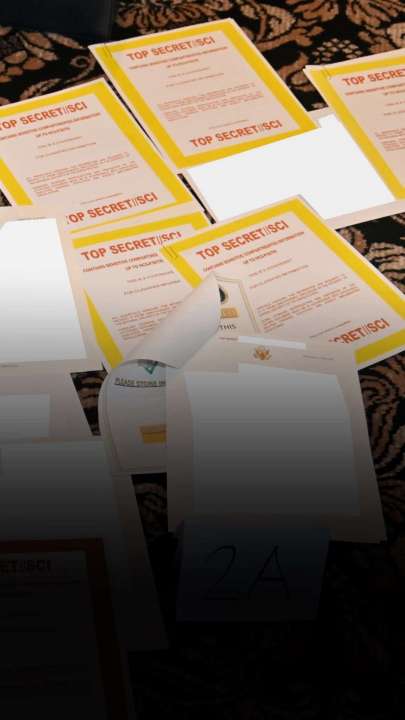Ever since the FBI searched Mar-a-Lago early last month, former president Donald Trump and his most faithful allies have downplayed the severity of his suspected offenses by 1) baselessly suggesting that the FBI might have planted documents and, alternatively, 2) arguing that he had somehow declassified the documents.
New Trump filing undercuts two pillars of his public defense

In its most substantial filing responding to the government’s claims, though, Trump’s legal team Wednesday night offered a very different argument — one that undercut both of those evidence-free claims.
Suddenly, they contended that the documents were indeed there, but they were Trump’s “own Presidential records.” And not only did the Trump team again decline to actually claim in court that he had declassified the documents; the team said it would be “appropriate” for the special master it wants to review the documents “to possess a Top Secret” security clearance.
It’s not the first time Trump’s legal strategy hasn’t matched his out-of-court bluster. But it was the most significant indication to date of the asymmetry between the two.
In the filing, Trump’s lawyers repeatedly talk about the documents as indeed being present at Mar-a-Lago, while suggesting that they somehow might have been there legitimately.
It begins with a reference to the idea that the FBI is criminalizing “a former President’s possession of personal and Presidential records” and later refers, again, to “the lawful possession of presidential documents.”
It derides the idea that Trump “has ‘no right’ to possess Presidential documents” and that he “illegally” possessed them.
It says the National Archives “should have simply followed up with [Trump] in a good faith effort to secure the recovery of the Presidential records.”
It also briefly suggests that this was merely a dispute between Trump and the Archives over “Presidential library contents.”
The apparent acknowledgment that the documents were actually in Trump’s possession followed a Trump post on social media Wednesday that seemed to also grant he had the classified-marked documents. Trump referred to them being in “cartons,” while taking issue with agents spreading them out on the carpet and snapping a photograph.
Perhaps most conspicuous in the filing, though, was the continued absence of a claim that Trump had declassified the documents. He has said this publicly, and his lawyers have gestured in that direction in their various public comments. But Trump’s legal team has repeatedly declined to actually claim this in legal proceedings, dating back to the early days of the dispute in late 2021 and early 2022, the government said Tuesday. Trump’s legal team also made no mention of the claim in a May letter or in filing the lawsuit seeking the special master last week. (In that May letter, Trump’s lawyer did say that Trump had absolute authority to declassify documents, but did not assert that he actually had done so.)
Its absence Wednesday night was particularly glaring, though, given that the government proactively cast doubt on this claim in its own filing the day before. The government had said Trump and his lawyers hadn’t claimed the documents were declassified either in January, when Trump voluntarily handed some documents over, or in June, when his representatives handed over some more and asserted — falsely, it appears — that Trump possessed no more documents with classification markings.
Rather than deal with the government’s summary of the matter, Trump’s lawyers said in a footnote, “Movant does not at this time address every misleading or incomplete statement of purported ‘fact’ made by the Government in its Response at pages 3 to 14.” (The government made these statements on pages 4 and 8 of its filing.)
Indeed, the government had contended in its own filing that Trump’s legal team treated documents as classified in June, delivering them in an envelope that was “double-wrapped in tape.”
Even beyond that, Trump’s legal team is also now acknowledging in its own words that the documents might be sensitive enough to warrant a special master who has very high security clearance.
“Movant also agrees that it would be appropriate for the special master to possess a Top Secret/SCI security clearance,” Trump’s filing states. (SCI refers to “Sensitive Compartmented Information” — which means it isso sensitive that only those with a proven need to see it can view it.)
That would seem wholly unnecessary if these documents had indeed been declassified.
Of course, there remains no evidence that they actually were. And it’s not strictly relevant to whether Trump broke the law; the statutes involved don’t require the information to have been classified.
But it does reinforce that Trump’s legal strategy seems to involve walking back some of his biggest claims and suggestions — which is worth keeping in mind as Trump continues to lodge them.






